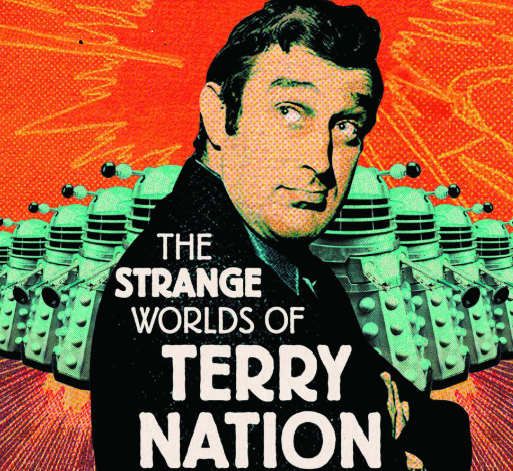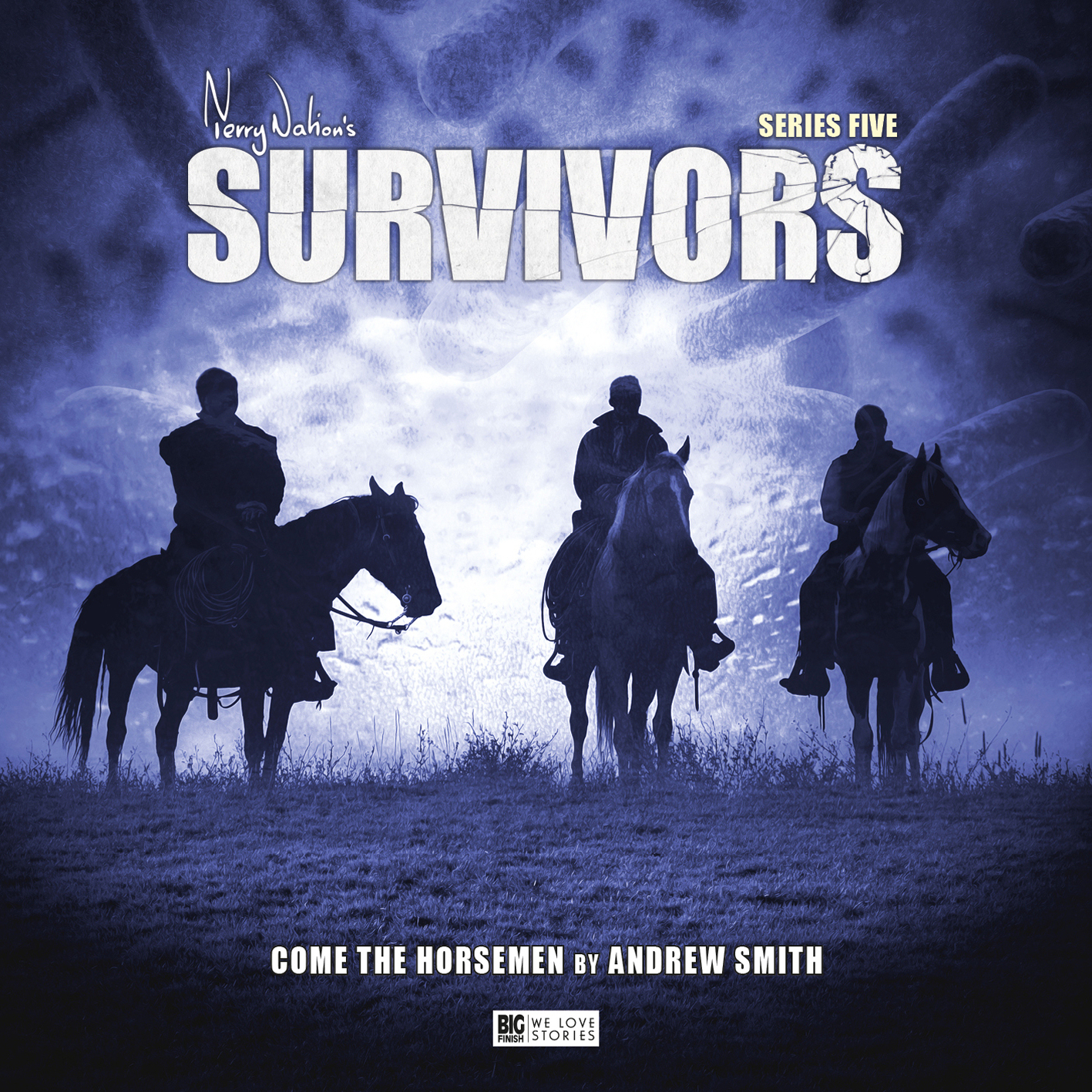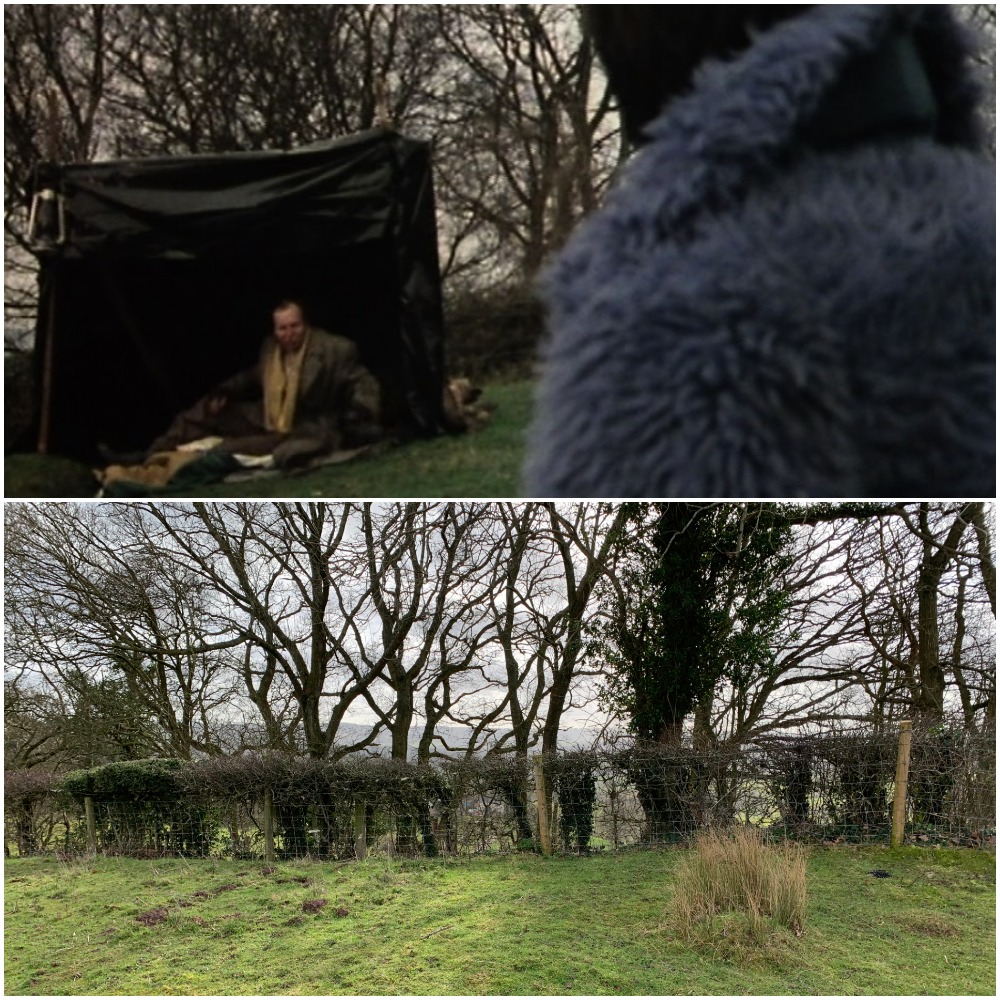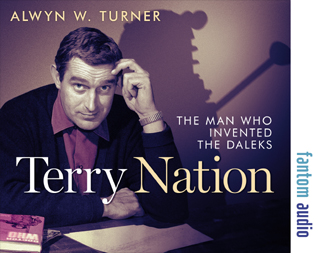
ALWYN W TURNER'S study of the career of scriptwriter and show creator Terry Nation is a fast-moving and highly readable account of an often under-appreciated popular dramatist of both TV and radio. The Man Who Invented the Daleks: The Strange Worlds of Terry Nation emulates much of the same rip-roaring page-turning quality of so much of Nation's own output.
Taking a straightforward chronological approach to his subject, Turner begins his tale with Nation's childhood in Wales and his early forays into the entertainment industry; experiments which conclude with him taking the momentous decision to up sticks and move to London to realise his ambition of becoming a professional script writer. Turner documents, in some revealing detail, Nation's early (and sometimes faltering) work as a radio wordsmith and shows how his career gradually took off. Nation's association with a talented ensemble of fellow writers with whom he would collaborate and his recruitment by an ideally-positioned group of new agents, Associated London Scripts.
Nation's early radio work often overlooked and Turner provides an extremely interesting account of Nation's contributions to radio shows including Friday the 13th, The Ted Ray Show, The Jimmy Logan Show and Wish You Were Here.
From this earliest work onwards, Turner sets asides time not only to summarise many of the storylines from Nation's radio scripts and teleplays, but also to explore and analyse them; picking up on plot motifs, questions of setting and place, characterisation and dialogue, and image and metaphor.
Cultural historian
Turner is a widely-published cultural historian, and in documenting Nation's unevenly evolving career, he takes the time to situate Nation's writing in the times in which those scripts were being conceived and written. Turner finds themes and preoccupations within contemporary British culture reflected in Nation's words; and (especially as Dalekmania took hold) evidence of how far Nation's work resonated in that same popular culture. Turner revisits this theme throughout the book, revealing the interconnections between Nation's wordsmithing and the life-and-times in which he was writing.
Turner finds themes and preoccupations within contemporary British culture reflected in Nation's words
Rich Cross
Understandably, Turner spends a fair chunk of the book assessing Nation's contribution to the popularity and longevity of Doctor Who. He reassesses the contentious question of the genesis of the iconic Dalek design (and of the subsequent successful commercial exploitation of the icon) in a well-balanced assessment, which acknowledges both Nation's conceptual outline (and his characterisation of Dalek villainy) and BBC visual effects designer Raymond Cusick's brilliant realisation of that concept.
Recounting the phenomenon of 'Dalekmania' from Nation's perspective is revealing, giving a sense not just of the runaway popularity of the Daleks (a familiar story) but also of what it felt like to be at the epicentre of their unanticipated success, and of coming to realise the scale of the financial reward that could come from a single truly inspired idea. Although hugely lucrative, and providing Nation with a long-term dependable income that many of his contemporaries eyed jealously, the Daleks became something of a behemoth; threatening to overshadow Nation's future work and becoming so disproportionately successful as to be effectively unmatchable in the remainder of any normal writing career.
Within genre television Nation's rights deal over the Daleks was not something which many of his contemporaries (or his successors at the BBC) were able to replicate, and it provided him with the single most significant revenue stream for the remainder of his career, even during those decades where his own contribution to the development of the Dalek mythos was minimal. Daleks may have continued to have problems with stairs for many years, but they continued to open doors for their creator at the BBC, and made it far easier for Nation to find support for his pitches for Survivors and Blake's 7 in the 1970s.
Action and adventure
Nation's enthusiasm for action and adventure serials (he was a contributor to very many over the years) is shared by Turner; who revels in many of Nation's signature episodes for a variety of action TV drama for ITV and BBC. He showcases several in some detail, including The Saint, The Baron, The Champions, Department S and The Avengers. In doing so, Turner relishes the highpoints in Nation's contribution to such fondly remembered shows, whilst not holding back from pointing out the weaker elements in the Nation adventure canon.
One of the obvious temptations to which many biographers succumb is to over-inflate the significance of their subject. Turner offers a far more reasoned assessment of Nation's worth, celebrating his contribution to the field of action and adventure TV (in particular) and arguing for his recognition as an accomplished wordsmith and effective teller of tales, without feeling the need to oversell the profundity of Nation's work.
The Daleks provided Nation with the single most significant revenue stream for the remainder of his career
Rich Cross
Unlike some of Nation's less charitable critics, Turner does not automatically equate Nation's frequent reliance on familiar tropes with limitations in his creative talent. In response to the suggestion that Nation was often responsible for 'workmanlike' scripts, Turner is keener to see Nation better understood as a craftsman; as a creator of TV worlds and stories which (if they did often rely on familiar motifs and template elements) could be hugely entertaining, thoroughly absorbing and often thought-provoking too.
There are some interesting explorations of the many 'what-ifs' of the Nation career - opportunities which were never realised; commissions which never came to fruition; experiments which were cancelled prematurely. One of the most unfortunate of these never-was moments, for Turner, the failure to win a commission for a full series of The Incredible Robert Baldick; a hybrid fantasy and period detective drama which did not progress beyond a speculative pilot.
For enthusiasts of Survivors (a period in Nation's career which occupies just over a chapter of the book) there is much to be enjoyed in Turner's account of the decisive turning points in the evolution of the programme, although there are no dramatically ground-breaking revelations. There is new testimony from Brian Clemens on the clash between the two writers over the ownership of the defining ideas of the show (Clemens took Nation to court claiming he had stolen the concept of Survivors, but later dropped the case); additional detail on the dysfunctional relationship between Nation and producer Terry Dudley; and some new perspectives on the events and conflicts which led to Nation's departure from the show at the close of the first series. Turner also explores, in much greater detail than anyone else has so far afforded, the creative processes surrounding Nation's 1976 Survivors novel; and analyses the storylines and characters of the work with some satisfyingly well-argued results.
Producer conflicts
Having secured the BBC's backing for his new space drama Blake's 7, Nation was determined not to endure a repeat of the disappointment he experienced on how Survivors developed - under the aegis of a producer whom Nation felt (unfairly, it should be stressed) simply did not grasp the potential of the programme. With Nation taking on to deliver an entire series of thirteen scripts singlehandedly (to ensure total creative control, he reasoned), Turner shows how challenging it proved to be for him to deliver on that commitment. On the two subsequent series, Nation accepted the need to share responsibility with other writers. Nation did not contribute to the fourth and final series of Blake's 7: for the second time in his career an entire series of a TV show that he had devised was brought to the screen without his input as a scriptwriter.
Nation failed to find the success in the American TV industry that he had hoped awaited him
Rich Cross
As the study moves to the endgame of Nation's career (after his relocation to the USA), an undercurrent of melancholy imbues proceedings. Crossing the Atlantic, Nation failed to find the success in the American TV industry that he had hoped awaited him. The inability to secure a US remake of Survivors was only one of many disappointments with which Nation had to contend. It does seem significant that renewed success eluded Nation at the very point when he separated himself from the professional support networks which had served him so well in the UK - not only his close writing collaborators, but also the robust representation provided by Roger Hancock and his colleagues. His ability to reference and reflect ideas in the popular the culture around him was - as an ex-pat living in a foreign country - much reduced; and he enjoyed little of the reputation he had secured as a genre TV specialist in the UK.
But the somewhat subdued twilight years of Nation's writing career should in no way obscure the decades of success which preceded them. In particular, Nation's reputation as a creator of truly memorable action and adventure, science fiction and genre television will secure his long-lasting reputation in the field; even if those pesky pepper-pots threaten to permanently dominate the Terry Nation story, obscuring many of the other impressive entries in his extensive canon of work.
Although not providing the level of in-depth detail that some enthusiasts will crave, Alwyn W Turner's engaging, wide-ranging and persuasive account of Terry Nation's career is likely to become the reference work on the scriptwriting talents of a figure that (for all of his tendencies towards formula and his imperfections as a dramatist) Turner rightly celebrates as a craftsman of the genre.
Alwyn W Turner. 2011. The Man Who Invented The Daleks, The Strange Worlds Of Terry Nation. London: Aurum Press.
Read more about The Man Who Invented the Daleks.
Read an interview with author Alwyn W Turner.
Cite this web page
Cross, R. (2021). 'Review: The Man Who Invented the Daleks,' [online] Survivors: A World Away, 31 January. Available at: https://survivors-mad-dog.org.uk/a-world-away/Nation_Daleks_Review.php. Accessed on: 03 March 2026.
Current style: Harvard
TAGS








